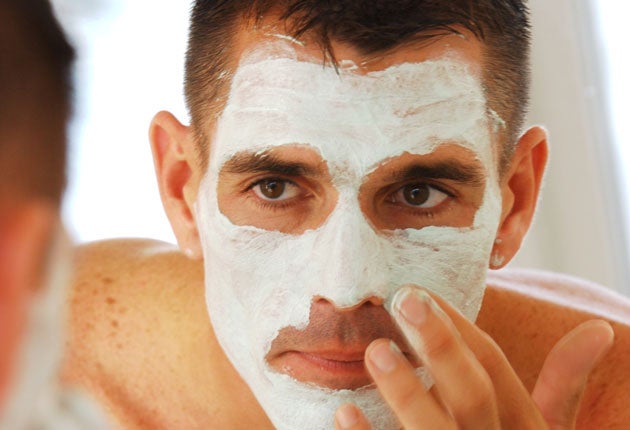How the new New Man won
When he coined the term ‘metrosexual’ in the pages of The Independent in 1994, Mark Simpson had no idea that it would come to define our idea of modern manhood

Your support helps us to tell the story
From reproductive rights to climate change to Big Tech, The Independent is on the ground when the story is developing. Whether it's investigating the financials of Elon Musk's pro-Trump PAC or producing our latest documentary, 'The A Word', which shines a light on the American women fighting for reproductive rights, we know how important it is to parse out the facts from the messaging.
At such a critical moment in US history, we need reporters on the ground. Your donation allows us to keep sending journalists to speak to both sides of the story.
The Independent is trusted by Americans across the entire political spectrum. And unlike many other quality news outlets, we choose not to lock Americans out of our reporting and analysis with paywalls. We believe quality journalism should be available to everyone, paid for by those who can afford it.
Your support makes all the difference.Straight lads are such bloody tarts now," my friend Dave said, gazing at a nicely turned-out man. "And it's all your fault."
It was a warm summer evening last year and we were enjoying a pint outside a pub in the North-east of England, where I now live. In the metropolis, far away, it was Gay Pride. But we didn't feel we were missing out.
Although we were hundreds of miles away, thanks to the triumph of metrosexual pride in the Noughties we had plenty to look at with the local lads in their fake tans, fashionably complicated jeans, sculpted hair, intricate beards, figure-hugging shirts and muscle-flattering tattoos.
A decade-and-a-half after I first wrote about the "metrosexual" in The Independent in 1994 (eight years later I returned to the subject for the American online magazine Salon – this time persuading the rest of the world to notice them, too) a lot of straight boys are better at the "gay" thing than most gays. They're not terrified of something that might look a bit girly. All they care about is looking good.
It's not just a metropolitan thing anymore. Even in the town where I live, many young straight men have better bodies, better skin, better clothes and just a better sense of male sexiness. At the end of the first decade of the 21st century, metrosexuality, the male desire to be desired – by everyone, including other men – once regarded as pathological, perverted and something to keep to yourself, is so commonplace it's normal.
Metrosexuality isn't really about men becoming "gay" or "girly". Nor is it about visiting spas and wearing flip flops or carrying manbags. Rather, metrosexuality is about men becoming everything – to themselves, in much the same way that women have been for some time. It's about men finally realising that if women can appropriate "male" behaviour and practices for their own enjoyment and advancement, then why can't men do the same thing? And if women won't be women for men anymore, why should men be men for women?
So, in the Noughties, James Bond in Casino Royale became his own Bond Girl: in 2010, Men's Health became the UK's best-selling men's magazine. Meanwhile, in the United States, the TV hit Jersey Shore features Mikey "The Situation" Sorrentino, who proudly extols his metrosexual mantra of "Gym. Tan. Laundry".
Yes, I agree, "metrosexual" is a terrible, ridiculous, annoying word. But then, so is "homosexual". Or "heterosexual". Though none of them is quite as awful as the creepy "suits you, sir!" euphemism "male grooming". Too many men's magazines still seem to be terrified of putting the word "male" next to "beauty" in case someone thinks they're gay. Or, even more pathetically, afraid their readers will think the magazine thinks they're gay. Based on my own observations from the frontline of male aesthetics in rural England, I suspect most of their younger readers are already way ahead of these media sissies anyway.
The word metrosexual will probably only finally fall out of use when masculinity and heterosexuality are no longer considered synonyms. The rise of male behaviours and tastes which have been characterised as metrosexual has been made possible in large part by the decline in the stigma attached to male homosexuality.
While this stigma made life rather difficult for homosexual men, it also had an instructive, not to say repressive, effect on all men. True, looking today at the evidence of untrammelled male self-regard, such as Cristiano Ronaldo, some might say that male metrosexuality was an urge that really did need to be repressed. But love him or loathe him, or call him by any other name, the metrosexual and bronzed new masculine world he represents is here to stay.
'Metrosexy: A 21st Century Self-Love Story' by Mark Simpson is available on Kindle (£4.77)
Join our commenting forum
Join thought-provoking conversations, follow other Independent readers and see their replies
Comments